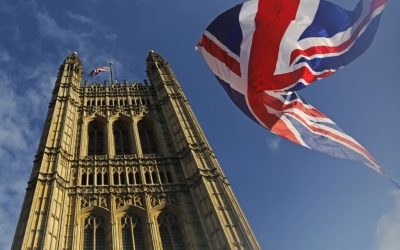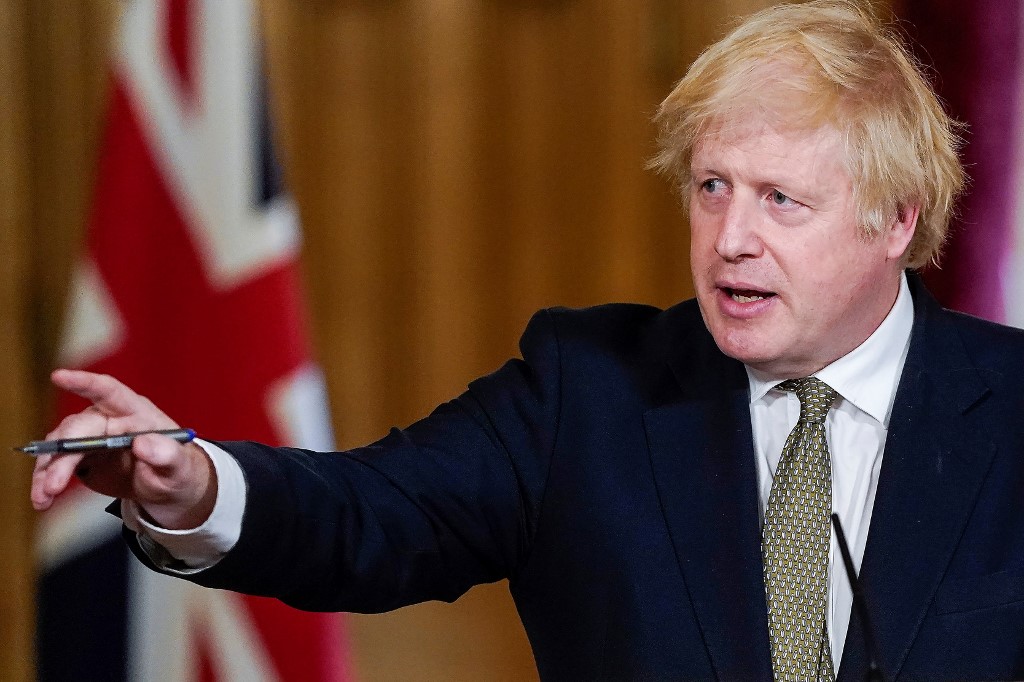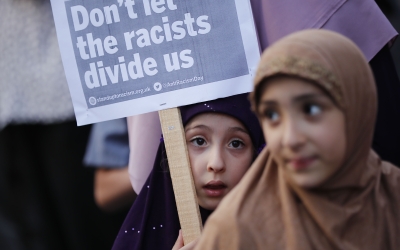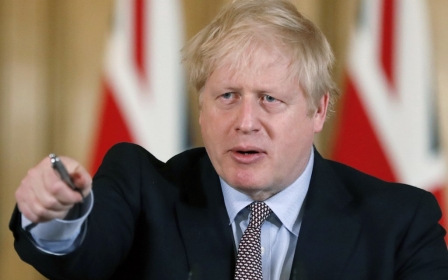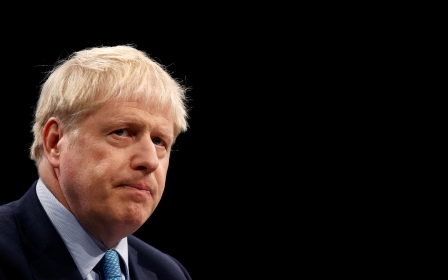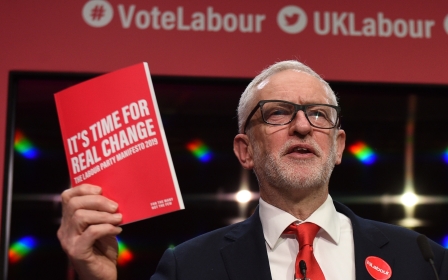Has the UK equality watchdog become institutionally Conservative?
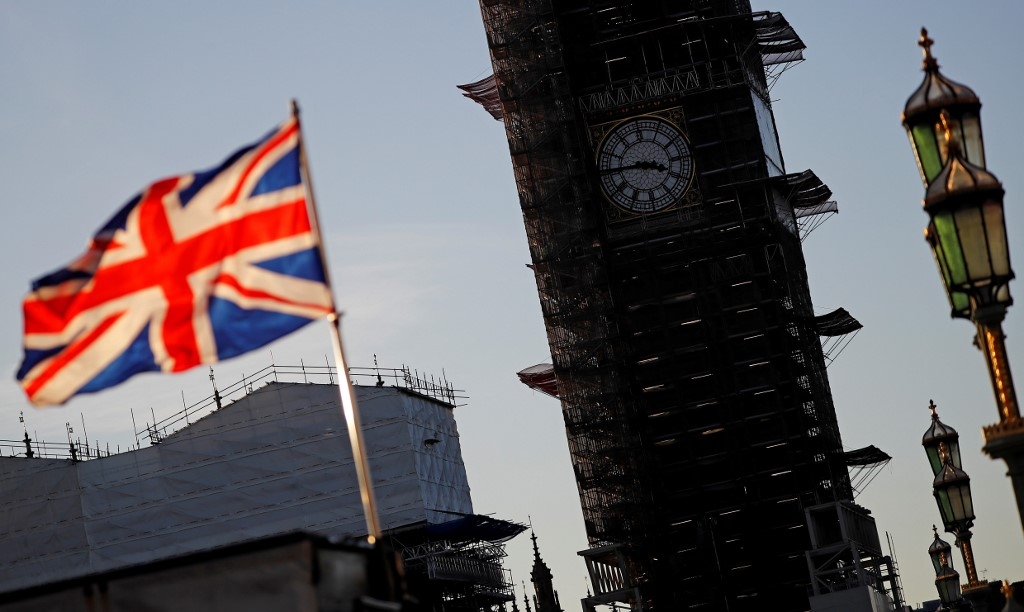
Today, I make no apology for returning to the subject of the UK Equality and Human Rights Commission. Last week, I examined its decision not to investigate claims of Islamophobia in the Tory party.
I noted that the EHRC appeared to favour the Conservatives over Labour, and to take Tory Islamophobia much less seriously than Labour antisemitism.
Events have moved on. As my column went to print, another story was providing yet more evidence of double standards from the equality watchdog.
Fabricated news
This episode concerned Prime Minister Boris Johnson’s health minister, Nadine Dorries. On 14 May, Dorries took time off from the coronavirus epidemic to retweet an unpleasant, far-right piece of fabricated news attacking Labour leader Keir Starmer.
New MEE newsletter: Jerusalem Dispatch
Sign up to get the latest insights and analysis on Israel-Palestine, alongside Turkey Unpacked and other MEE newsletters
The tweet in question was a doctored video that seemed to show Starmer explaining why he obstructed prosecution of “grooming gang” members when he was head of the Crown Prosecution Service. But a longer video makes clear this is total nonsense. Starmer was in fact explaining why he had changed prosecution guidelines to better serve victims of child sexual exploitation.
Only one of these cases brought a rebuke from the EHRC. No prizes for guessing which
Within a short space of time, Dorries - along with two other Tory MPs, Lucy Allan and Maria Caulfield, who had also retweeted the video - took the tweets down and were duly slapped on the wrist by the Tory whips’ office. Caulfield said she apologised to Starmer, but I have found no evidence that Dorries or Allan publicly did the same. Their offices did not respond to a request for confirmation on Tuesday.
Let’s now compare the EHRC’s reaction to this incident to an earlier episode involving Labour MP Naz Shah. The circumstances are strikingly similar.
In August 2017, Shah shared a tweet from a parody account of journalist Owen Jones that said: “Those abused girls in Rotherham and elsewhere just need to shut their mouths. For the good of diversity.”
Despite deleting the tweet within minutes, Shah was immediately set upon by the media, and a petition was created calling for her to resign.
Remarkable silence
And yet, only one of these cases brought a rebuke from the EHRC. No prizes for guessing which.
Chief executive Rebecca Hilsenrath came down like a ton of bricks on the Labour MP: “Ms Shah should know better. We need to keep the victims of these horrific crimes at the heart of the debate and always remember that diversity is not served by silence.”
By contrast, there has been no condemnation from Hilsenrath, or anyone else at the EHRC, for the actions of Allan, Caulfield and Dorries. It looks like one law for the Tories and another law for Labour.
The EHRC silence was all the more remarkable given that Dorries has a history when it comes to inappropriate social media activity, having retweeted a post by Tommy Robinson in 2017.
To be fair, Shah was also suspended from the Labour Party in 2016 pending an investigation into her sharing of an antisemitic Facebook post. But Shah went to great lengths to apologise, including to the Commons, and to learn from her mistakes.
Indeed, her response was praised by the Board of Deputies of British Jews, as then-president Jonathan Arkush said: “Naz Shah is one of the only people involved in Labour’s antisemitism crisis who has sought to make amends for her actions, and for this we commend her and now regard Naz as a sincere friend of our community.”
'Dereliction of responsibilities'
In sharp contrast, I can’t find evidence of Dorries ever publicly apologising for promoting Robinson’s vile tweet. Indeed, Dorries’ retweet remains on her Twitter account to this day, though Robinson has been deleted from Twitter so you can no longer see what he had said. She’s apparently allowed to get away not just with her tweet, but also with her failure to make amends.
We now seem to have a pattern of the EHRC applying different standards to the Labour and Tory parties. This is why I believe that more than 100 British mosques and 40 Muslim organisations were justified in accusing the equality watchdog of a “dereliction of responsibilities”.
This is a particularly serious matter for the EHRC, whose mission is “to encourage equality and diversity, eliminate unlawful discrimination, and protect and promote the human rights of everyone in Britain”.
The letter reminds the EHRC that “allegations against the Conservative Party members are extremely serious, with Muslim Council of Britain indicating 300 cases that were submitted to you in March”. It points out that 47 percent of all religious hate crimes last year were aimed at British Muslims and questions whether the EHRC is too close to the Conservative Party.
Patronage and cronyism
These concerns are reasonable. There have been alarming signs dating back to the introduction by former Prime Minister Theresa May of a new government code on public appointments in 2016. The Guardian reported at the time: “Theresa May’s government has been accused of changing the rules on public appointments to make it easier in future for ministers to pick their political allies for senior jobs.”
The report quoted senior Labour Party figures who described the new code as a “power grab” and a return to the days of patronage and cronyism. A year later, reports emerged that Tory ministers were blocking appointments to the board of the EHRC.
Several years ago, Labour MP Harriet Harman raised concerns about the suitability of the EHRC’s current chair, David Isaac, given his principal role as an equity partner at a City law firm that advises the Conservative government, Pinsent Masons.
Perhaps it is just a coincidence that these decisions tend to favour the Conservative Party, but the evidence is piling up
In addition, the EHRC had two consecutive disability commissioners who were Tory peers. Sir Bert Massie, who chaired the Disability Rights Commission before it was merged into the EHRC, raised concerns about this: “If the perception is that the equality commission is a tool of the Conservative Party, it cannot legitimately be said to be independent.”
It is worth noting that the EHRC has failed to engage with a number of serious issues that have emerged over the past few years. It has so far failed to launch an independent inquiry into the Home Office following the Windrush scandal, despite calls from MPs and the Runnymede Trust to investigate.
And as I highlighted in my column last week, the commission has failed to launch an investigation into Tory Islamophobia. Perhaps it is just a coincidence that these decisions tend to favour the Conservative Party, but the evidence is piling up.
EHRC responds
I put to the EHRC that the failure to criticise Dorries represented a double standard. In response, a spokesperson said: “You will appreciate that we have to prioritise particular occasions and you will notice we also issued a comment when Boris Johnson made remarks in his column about Muslim women. To suggest double standards is unwarranted.”
The spokesperson insisted that the EHRC was not applying different moral judgements to the Labour Party and the Conservative Party in connection with Tory Islamophobia, stating: “We waited until the conclusion of the Labour Party’s Chakrabarti investigation and took our own action only when we continued to see evidence of a systemic issue, once the party had been given a chance to respond to its own investigation.”
'We have robust procedures and policies in place to manage conflicts of interests or perceived conflicts of interests'
- EHRC spokesperson
On Harman’s criticisms of the appointment of Isaac to the EHRC, the spokesperson responded: “We are an independent regulator and take our impartiality very seriously. We have robust procedures and policies in place to manage conflicts of interests or perceived conflicts of interests.
"Since taking up his role as chair, David Isaac has not been involved in or profited from any work for government departments or political parties. This arrangement was put in place during his appointment process.”
On Massie’s concerns about the appointment of two consecutive Tory peers as disability rights commissioners, the EHRC responded: “Our commissioners are appointed by government. We are an independent organisation and our record shows that.”
On the failure to investigate Windrush, the commission responded: “The Windrush scandal exposed deep flaws in the UK’s immigration system, and inflicted lasting damage on the lives of many British citizens. The independent review published in March underlined many of our serious and long-standing concerns about the impact of the government’s hostile environment policies on some groups.”
Serious concerns
With regards to Tory Islamophobia, the commission repeated its previous position that it “would not be proportionate” to launch its own inquiry at this time.
I also asked the EHRC why it was happy to accept the Conservative Party’s terms of reference for their investigation into Islamophobia, when they presented the term “Islamophobia” in inverted commas. The EHRC replied: “We had an opportunity to see and comment on the draft Terms of Reference and the Conservative Party made changes accordingly.” The EHRC declined to comment on the details of those changes.
Two decades ago, the Macpherson report into the death of Stephen Lawrence found that the Metropolitan Police were institutionally racist. I asked the EHRC today how it responded to the suggestion that it had become institutionally Conservative.
The spokesperson replied: “We are an independent regulator and take our impartiality very seriously.”
I do not doubt the sincerity of that response. However, as the letter from mosques and Muslim organisations shows, many Muslims do not agree. The EHRC needs to take these concerns very seriously.
The views expressed in this article belong to the author and do not necessarily reflect the editorial policy of Middle East Eye.
Middle East Eye delivers independent and unrivalled coverage and analysis of the Middle East, North Africa and beyond. To learn more about republishing this content and the associated fees, please fill out this form. More about MEE can be found here.



